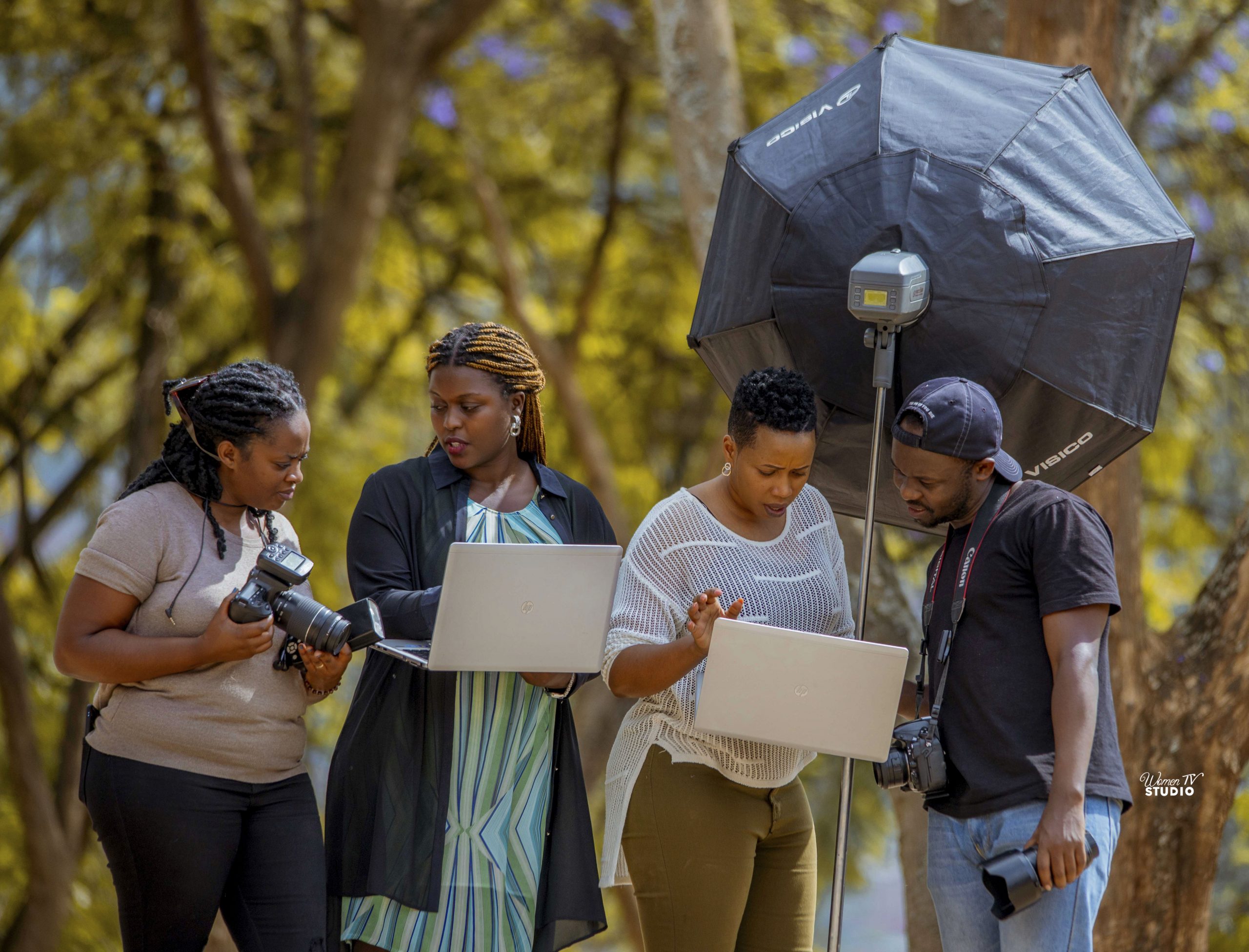Story
Phabiola

Empowering Rwandan women and youth to become visual storytellers
#DOTYouth Street Team member Phabiola Mukundente was in secondary school when she recognized both a passion and a problem. Her passion was for photography—she loved snapping photos of her friends. The problem? A lack of female photographers in Rwanda.
Obtaining a certificate in photography and videography from Kigali Films and Television in 2015 and enrolling in a journalism program, Phabiola has the desire to support other women in pursuing her same passion.
Phabiola is the founder of Women TV Studio, a social enterprise that trains young women and girls to become photographers, videographers, graphic designers, and audio-visual producers. That mission is supported through the for-profit arm of the company: the stunning commercial, wedding, and event photos and video that Phabiola shoots for clients across Kigali.
“My beneficiaries are girls and women who love this work but have sometimes no means to afford what it needs to be educated in this career,” explains Phabiola of the hands-on Women TV Studio training. “Our work has seen many youth gain not only knowledge but also confidence and self-esteem, and has allowed them to gain employment.”
Women TV Studio has reached more than 10 women so far, working with each of them one-on-one. Phabiola used the seed funding from the #DOTYouth Street Team to secure a classroom space to continue the training. A significant challenge, however, remains the expensive cost of equipment—digital cameras, computers, and other technology that would enable the initiative to reach more women and girls.
As well as supporting women, Phabiola wants to inspire other young entrepreneurs using the power of storytelling. “We try to reach out to entrepreneurs who can share their stories to our young generation and encourage them to keep working hard and to not quit easily,” says Phabiola. Those stories are uploaded to the Women TV Studio YouTube channel where Phabiola has hosted dozens of segments.
Eventually, Phabiola would like to empower other youth with the skills to share their own story. As part of that goal, there are plans to establish a series of multimedia clubs in schools.
“We aim to ignite a passion for photography, videography, and the media by engaging students in interesting workshops and competitions that allow them to fully showcase their potential to peers and the whole nation,” explains Phabiola.

COVID-19 challenges and post-pandemic aspirations
The COVID-19 pandemic greatly affected Phabiola and Women TV Studio. The creation of school clubs had to be put on hold during the lockdown, and the company was unable to continue offering many of its services due to the in-person nature of photography and videography.
Throughout the #DOTYouth Street Team, Phabiola committed herself to learning new things. Despite the pandemic-related letdowns, the program staff and other Street Team members encouraged her to keep working on the business.
“I learned that I have to not quit, and can change the way I work instead,” says Phabiola. “I’m just happy to have had the time to look at how to change my business and even to expand it so that when things are back to normal my company can operate at an exciting speed.”
When “normal” does come, Phabiola is ready with big ideas—though she needs the financial resources to make them happen and is looking for possible sponsorship so she can continue her work.
Eventually, her goal is to create an audio production facility and a room equipped with the technology needed to live stream performances of singers, presenters, and other artists. She would also like to continue developing her training program, perhaps one day starting a formal training school. In the meantime, she is doing all she can in her small rented space and with her personal equipment.
Regardless of the scale she is working at, Phabiola continues to advocate for gender equality, both in the media industry and within society.
“There is still a large gap in capacity building when it comes to the skills young women need to realize their potential. In addition, job opportunities are an issue, especially because ladies are considered unable by the majority,” says Phabiola. “Women TV needs to contribute to women’s empowerment by equipping them with the skills that can help them create their own businesses and hence they will create more jobs.”
Are you our next Community Leader, Digital Champion, or Social Innovator? Learn more about how to join #DOTYouth
Join #DOTYouthShare this Story
More STORIES
Read more inspiring stories like Phabiola.